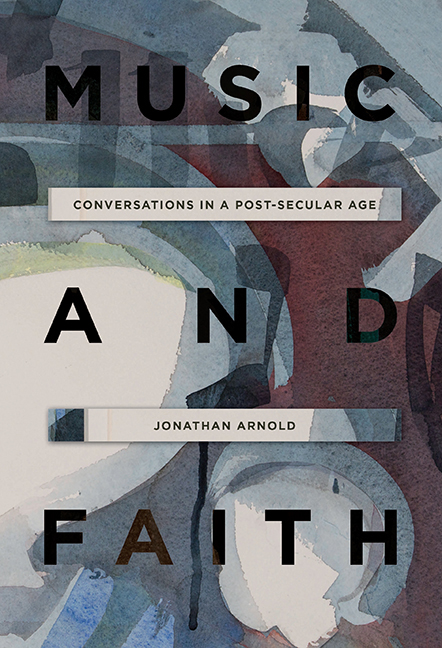Book contents
- Frontmatter
- Dedication
- Contents
- List of Illustrations
- List of Interviewees
- Preface
- Acknowledgements
- Introduction: Faith, Belief and Post-Secularism
- I MEDIEVALISM TO POST-SECULARISM
- II THE HUMAN MIND AND SOCIETY
- III BELIEF AND UNBELIEF
- 7 Music, Faith and Atheism
- 8 ‘Changing the Rumour about God’: Music and Anglican Clergy
- 9 Music, Faith and the Laity
- Conclusion
- Notes
- Bibliography
- Index
8 - ‘Changing the Rumour about God’: Music and Anglican Clergy
from III - BELIEF AND UNBELIEF
Published online by Cambridge University Press: 01 September 2019
- Frontmatter
- Dedication
- Contents
- List of Illustrations
- List of Interviewees
- Preface
- Acknowledgements
- Introduction: Faith, Belief and Post-Secularism
- I MEDIEVALISM TO POST-SECULARISM
- II THE HUMAN MIND AND SOCIETY
- III BELIEF AND UNBELIEF
- 7 Music, Faith and Atheism
- 8 ‘Changing the Rumour about God’: Music and Anglican Clergy
- 9 Music, Faith and the Laity
- Conclusion
- Notes
- Bibliography
- Index
Summary
How beautiful are the feet of him that preaches the Gospel of peace.
Clergy are given the task of communicating the Gospel of peace. The Ordinal of the Church of England states that they are ‘to proclaim the word of the Lord and to watch for the signs of God's new creation. They are to be messengers, watchmen and stewards of the Lord … With all God's people, they are to tell the story of God's love.’ This proclamation is, of course, often achieved by using words, in sermons, in the scriptures and in the liturgy. So we now explore how music relates to the Word: the story of God's love. Our way into this exploration begins with the work of Maeve Louise Heaney, who has addressed this relationship in her book Music as Theology: What Music Says about the Word. If theology is ‘faith seeking understanding’, as Anselm wrote, then, Heaney argues, ‘could music not also be theological? Does it not offer us, at the very least, a form of understanding of our faith …?’ Of course, her answer to this question is ‘yes’. Her conviction is that music offers a way to understand our faith which is complementary to ‘linguistic and conceptual’ comprehension. When she uses the term ‘Word’ she refers to the logos, the incarnate God, the Word made flesh, Jesus Christ. If theology aims to mediate an understanding of this logos, then music is a powerful mediator. So far as this goes, it is a music theory with which reformed theologian Jeremy Begbie would be able to concur. However, Heaney also alludes to music's ability to reveal the divine in a more intuitive sense that would appeal to those who do not assent to the salvation narrative of scripture surrounding the figure of Christ: ‘I therefore intuit that the acts of listening to and making music have something to teach us about who God is and who we are …’.
- Type
- Chapter
- Information
- Music and FaithConversations in a Post-Secular Age, pp. 178 - 195Publisher: Boydell & BrewerPrint publication year: 2019

